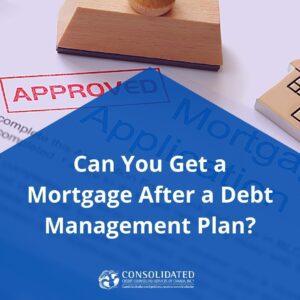Finding the perfect home isn’t your only important task as a home buyer. You also need to choose a lender and decide what type of mortgage, fixed or variable rate, is best for you. Making an informed decision can ease financial angst and potentially save you a lot of money. As you prepare to invest your hard-earned dollars, invest a little time to understand how each type of mortgage works.
How does a fixed-rate mortgage work?
With a fixed-rate mortgage, monthly payments, and the interest you pay, stay the same for the duration of your mortgage term. Once you and your lender settle on the terms of your mortgage, for example, 2.5% for 5 years, that rate is locked in.
How does a variable-rate mortgage work?
A variable-rate mortgage has a variable or “floating” interest rate. At first, you pay a set rate that’s usually lower than with a fixed-rate mortgage. After that initial period, the rate will fluctuate—in relation to your lender’s prime rate and the Bank of Canada’s bond yields—throughout the rest of the term. Your monthly payment amount stays the same, but how much goes toward interest and how much pays down your principal will fluctuate. An exception to that is the adjustable-rate mortgage, where monthly payments can change along with interest rates.
Both fixed-rate and variable-rate mortgages can be either open or closed. With an open mortgage, you have the option to break the mortgage early, without penalty, by prepaying in full or in part, or by changing the term of your mortgage. If your mortgage is closed, there’s a breakage penalty.
Which option is better?
Historically, Canadians have preferred fixed-rate mortgages. Even though variable-rate mortgages have a better track record of saving people money. Many home buyers are willing to pay more if it eases uncertainty.
Trends change, however.
Since pre-pandemic, home buyers have enjoyed a low-interest environment and flocked to variable-rate mortgages. Investors have wondered when rates would rise again, and it’s happening now. The Bank of Canada has started to increase its prime rate to curb inflation, which is at a 30-year high. All the more reason to take some time to do your homework.
The pros and cons of a fixed and variable mortgage
The pros of a fixed-rate mortgage are stability and predictability. People who tend to feel anxious about market fluctuations often prefer the simplicity and peace of mind of a fixed rate. One rate, no surprises.
The cons of a fixed-rate mortgage are potentially higher costs over time. This type of mortgage is riskier for lenders, so you pay a premium to lock in. If the prime rate falls, you won’t benefit because you’re locked into the same rate for the duration of the term. Also, if you decide to break your mortgage, you’ll likely pay a greater penalty than with a variable-rate mortgage. Many lenders charge the full amount of interest remaining on the mortgage term.
As for a variable mortgage, the pros are flexibility and potentially lower costs. If the prime rate drops, so will your interest rate, meaning you pay off your mortgage faster. Also, lenders are more flexible with the rules for variable-rate mortgages. You can switch to a fixed-rate mortgage at any time or break the mortgage early without a significant penalty. Most lenders charge only three months’ interest as a breakage penalty.
The cons of a variable mortgage are financial uncertainty and the potential to pay more interest after the initial rate period. Entering into a variable-rate mortgage the hope is that rates will stay low or drop further. If they rise instead, you’ll pay more interest and take longer to pay down your principal.
Frequently asked questions
Ask your lender if they have a cap rate or convertibility feature.
Cap rate. This is the maximum percentage you will pay in interest. If you have a cap rate you’ll never pay higher, no matter how much prime rises.
Convertibility feature. With this option, you can switch to a fixed-rate at any time.
Yes. A hybrid mortgage, also called a combination or step mortgage, combines the features of fixed-rate mortgages and variable-rate mortgages. With a hybrid mortgage, you pay interest at a fixed rate for part of your mortgage, and at a variable rate for the other portion. A 50/50 split is common.
To some degree yes. Do your research first to see who offers the lowest rate, and then ask your preferred lender if they can match it.
Many lenders will let you switch from a variable rate and lock into a fixed rate. If you already have a fixed-rate mortgage, however, you’re locked in. You might be able to end the term early, but you would likely pay a penalty, which can be substantial.
How to decide: fixed or variable rate
Deciding whether to choose a fixed or variable rate boils down to one thing. If you think interest rates will go up, it’s safer to lock into a fixed-rate mortgage. However, if you feel confident that rates will drop, you could save a lot by opting for a variable rate.
Let’s examine other deciding factors:
Risk tolerance
Can you tolerate financial uncertainty and risk? If you prefer predictable monthly payments and interest rates, even at the cost of potential savings over time, a fixed rate might be for you. If you’re comfortable with market fluctuations, consider a variable rate.
Market indicators
What’s happening in the economy? What are financial experts predicting about interest rates over the next few years? If all signs point to lower interest rates, consider a variable rate. Are rates on the rise for the foreseeable future? It might be more prudent to lock in.
Your future plans
How likely are you to break your mortgage? This can happen if you want to pay it in full, lose your job or need to relocate. If you’re unsure about keeping the mortgage for its entire term, consider a variable rate because the breakage penalty is lower.
Wrap up
Buying a home should be an exciting venture, ideally with minimal anxiety. Rest easy and feel confident about your purchase by making an informed decision. If you find yourself stressed about finances and unable to keep up with bills, Consolidated Credit Canada is here to help. Call us to find out more about how we can help.




